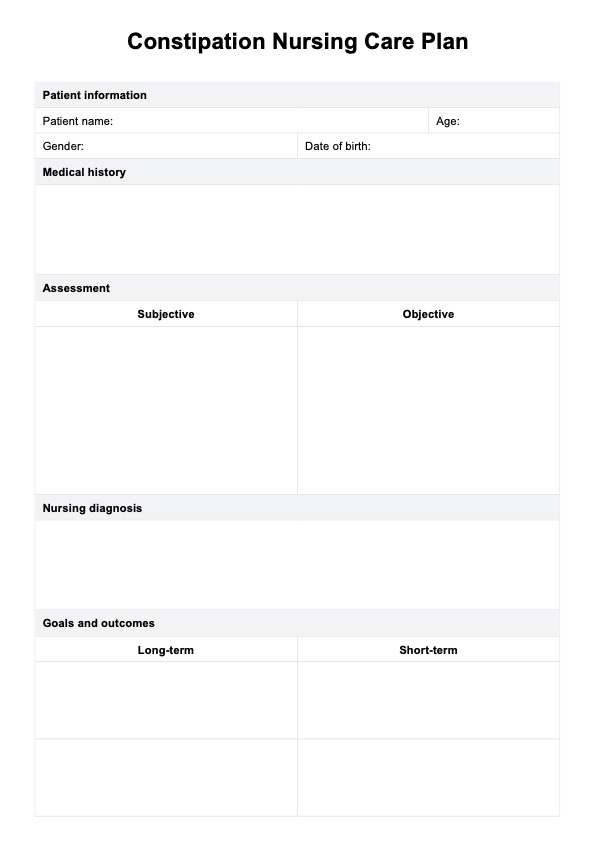A constipation nursing care plan is used when a patient presents with symptoms of constipation, such as infrequent bowel movements or difficulty passing stool. It is essential for guiding the assessment and management of patients, especially those with underlying conditions like irritable bowel syndrome or chronic constipation.

Constipation Nursing Care Plan
Looking for a constipation nursing care plan template? Download Carepatron's free PDF to create a detailed care plan for patients with constipation.
Constipation Nursing Care Plan Template
Commonly asked questions
Interventions for constipation may include recommending dietary changes, such as increasing fiber intake and hydration, as well as educating patients on the importance of regular physical activity. Healthcare providers may also consider prescribing laxatives or stool softeners to facilitate bowel movements and prevent complications associated with constipation.
Common nursing diagnoses for constipation include "constipation related to inadequate dietary fiber intake" and "bowel incontinence related to impaired bowel control." These diagnoses help healthcare providers develop targeted care plans that address the specific needs and challenges faced by patients experiencing constipation.
EHR and practice management software
Get started for free
*No credit card required
Free
$0/usd
Unlimited clients
Telehealth
1GB of storage
Client portal text
Automated billing and online payments











